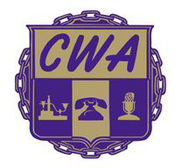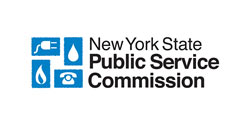
Fast, affordable Internet access for all.

The war over keeping copper alive rages on in New York with more stealthy antics from Verizon. Stop the Cap! now reports that, rather than wait for a hurricane to take out the copper lines in the Catskills, it will quietly shift seasonal home owners to VoiceLink as they request reconnection. Stop the Cap! also published a letter [PDF] from the Communication Workers of America (CWA) who allege Verizon has also been installing VoiceLink in the City.
We recently visited this drama with Harold Feld from Public Knowledge on Broadband Bits podcast #52. He and Christopher discussed the issue as it applies to Fire Island in New York and Barrier Island in New Jersey. Verizon has permission from the New York Public Services Commission (NYPSC) to use the VoiceLink product in place of copper wires on a temporary basis as a way to get service to victims of Hurricane Sandy. Seven months is a long time to go without phone service.
Our readers know that VoiceLink short changes users, especially those that rely on phone connections for Life Alert, want to use phone cards, or want the security of reliable 911 service. Feld also noted in his Tales from the Sausage Factory blog, that Verizon was rumored to be making secret plans to expand VoiceLink well beyond the islands, regardless of the limitations of the NYPSC order.
It appears the rumors were true and only scratch the surface. The letter from CWA District 1 President, Chris Shelton, to the NYPSC relates how members engaged in work for Verizon were trained to install VoiceLink and that the company installed the product in a variety of locations in New York City. One location was a residential building in Manhattan. Reportedly, when elderly residents discovered it would not support Life Alert, they resisted. Verizon counters that it offered VoiceLink as a temporary substitute without charge to the residents, not that it attempted to force the product on residents as CWA alleges [PDF of Verizon's Letter]. According to Verizon, the residents' copper connections were up and running again in June. CWA goes on to allege that Verizon continues to shift staff from copper related positions to installing VoiceLink in Buffalo and Watertown [PDF of Shelton's letter].

Customers from the Catskills described their experience to Stop the Cap!:
“I got transferred twice and finally ended up talking to someone pushing something called Voice Link.”
...
“I called them back and told them they must be mistaken because I don’t own property on Fire Island and they told me it was no mistake and that they were preparing to distribute Voice Link all across the area and I was lucky to be among the first before they ran out,” the customer tells us.
From another customer:
“When I called to get my dial tone back, Verizon transferred me to a special repair representative who wanted to install Voice Link instead,” he tells us. “It was explained I would be better off with Voice Link and would get more calling features for less money and get national calling, free voicemail, and all of these other extras.”
The customer tried to turn the offer down, but Verizon made it difficult to refuse.
“You really had to argue with them and say no at least a dozen times,” our reader tells us. “The reason I said no is that I tried that same type of service from Verizon Wireless and it sucked. I raised my voice and they finally agreed to reconnect my phone.”
AARP recently expressed its displeasure at Verizon's shenanigans. Wireless Week reprinted parts of their statement [Google Docs]:

State director for AARP in New York Beth Finkel said in a statement, "Under the cover of Sandy, this push by Verizon could well work towards advancing the company's corporate strategy of steering customers towards more expensive services, but that doesn't match up to protecting the needs and interests of consumers."
AARP’s primary concerns over the switch to Voice Link include compatibility issues with Life Alert and security systems, the possibility of premature and widespread abandonment of wireline services, limitation of Internet service options for Voice Link customers and the end of access to services like collect calling and “0” dial-in access for operators.
Verizon responded by accusing AARP for "crying wolf" and extolled the virtues of VoiceLink. Wireless Week also reports:
[Verizon spokesman John] Bonomo said that Verizon will maintain the copper network where it makes customer service and business sense to do so, adding that the vast majority of Verizon copper customers have no issues at all with their service.
The complaints and the first CWA letter prompted New York's Attorney General to file an Emergency Petition with the NYPSC. The AG asked the NYPSC to stop Verizon from any more illegal installations and for sanctions:
Unlike Fire Island, wireline network damage from Superstorm Sandy cannot be used as an excuse for substituting Voice Link for wireline service in the Catskills, where the storm had limited impact. Instead, it appears that in the Catskills, Verizon has chosen to pursue the company’s business strategy in blatant disregard for the Commission’s Order.
The Commission’s May 16 Order could not have been clearer in limiting Verizon’s substitution of Voice Link for wire line service to western Fire Island, to enable evaluation of this unproven technology on a pilot basis.
Verizon’s provision of Voice Link outside the confines of western Fire Island is illegal, and its open defiance of the Commission’s May 16 Order must be met with effective sanctions.

On July 9th, the PSC decided to extend the comment period to September 13. So far, the agency has received over 400 public comments.
Fortunately, New York is not one of the growing number of states to deregulate phone systems so the NYPSC still has authority to act. As Feld notes on his blog:
If New York eliminated its COLR regulations, as a bunch of other states have done, then Verizon would not need to provide service at all. You would take Voice Link and be grateful for it — peasant. As it stands, New York has a Public Service Commission that can investigate and decide based on local evidence and local factors whether anything needs to be done. For example, even if the NY PSC decides Verizon did not violate the terms of its tariff, it might want to provide some guidelines to make sure that these disputes about what kind of sales tactics are permissible do not come up again.
Whatever path New York chooses, other states will be watching. While many have relinquished their ability to act for their own citizens, states that still possess the power to regulate wireline service, and by extension the IP transition, need to take note. Verizon is choosing its business model over the well-being of its customers and not afraid to step on legislative toes to do it.
